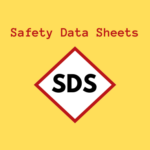The Environmental Impact of QMS Software: Nurturing Sustainability

In today’s rapidly evolving business landscape, sustainability has become more than just a buzzword; it’s a core value for companies aiming to reduce their environmental footprint. While Quality Management Systems (QMS) software is primarily associated with improving quality and compliance, its environmental impact is often overlooked. In this article, we’ll explore how QMS software contributes to environmental sustainability.
1. Reduction in Paper Usage
Traditionally, quality management processes relied heavily on paper-based documentation, which not only consumed valuable resources but also posed environmental concerns. QMS software replaces the need for extensive paper trails with digital documentation and electronic record-keeping. This transition significantly reduces paper consumption, saving trees and reducing waste. Moreover, digital records are easier to manage, retrieve, and share, further streamlining operations.
2. Minimized Energy Consumption
QMS software solutions are hosted on servers and data centers, which are becoming increasingly energy-efficient. Data centers are often designed with sustainability in mind, employing technologies like virtualization and advanced cooling systems to reduce energy consumption. By utilizing these technologies, QMS software indirectly contributes to reduced energy usage and a smaller carbon footprint.
3. Improved Resource Efficiency
One of the central principles of QMS is to optimize processes for maximum efficiency. By minimizing waste and improving resource allocation, QMS software helps businesses operate more sustainably. This, in turn, leads to reduced resource consumption, less energy usage, and lower greenhouse gas emissions.
4. Streamlined Supply Chain Management
QMS software plays a vital role in supply chain management by ensuring quality standards are met throughout the entire supply chain. This optimization reduces inefficiencies, such as overproduction and excess inventory, which can result in resource waste and unnecessary emissions. A streamlined supply chain is inherently more sustainable.
5. Enhanced Environmental Risk Management
Environmental regulations and standards are continually evolving. QMS software helps businesses stay compliant by providing tools to track and manage environmental risks effectively. This proactive approach reduces the likelihood of environmental incidents and associated consequences, such as pollution or fines.
6. Support for Green Initiatives
Many businesses are embracing sustainability as part of their corporate social responsibility efforts. QMS software can be configured to include sustainability metrics and key performance indicators (KPIs). This allows organizations to track and report on their environmental performance, supporting green initiatives and demonstrating their commitment to sustainability to stakeholders.
7. Reduced Travel and Emissions
QMS software often includes collaboration and communication tools that enable remote work and virtual meetings. By reducing the need for employees and stakeholders to travel for meetings or inspections, QMS software contributes to lower carbon emissions associated with transportation.
8. Data-Driven Decision Making
QMS software provides businesses with valuable data and insights into their operations. By analyzing this data, organizations can identify areas where they can further reduce their environmental impact. Whether it’s optimizing energy usage, reducing waste, or improving transportation logistics, data-driven decision-making is a powerful tool for sustainability.
Conclusion
In an era where environmental sustainability is a global imperative, every aspect of business operations must be examined for its environmental impact. QMS software, while primarily associated with quality and compliance, offers a range of benefits that contribute to a greener and more sustainable future.
By reducing paper usage, minimizing energy consumption, optimizing resource allocation, and supporting green initiatives, QMS software becomes a valuable ally in the pursuit of environmental sustainability. It empowers businesses to meet quality standards while simultaneously reducing their carbon footprint and environmental risks.
Incorporating sustainability into your business isn’t just about being environmentally responsible; it can also lead to cost savings, improved reputation, and enhanced competitiveness. As you explore QMS software solutions, consider the environmental benefits they can bring to your organization. If you’re looking for a QMS software solution that embraces sustainability, Trackmedium QMS is dedicated to helping your business thrive while nurturing a greener planet.



















